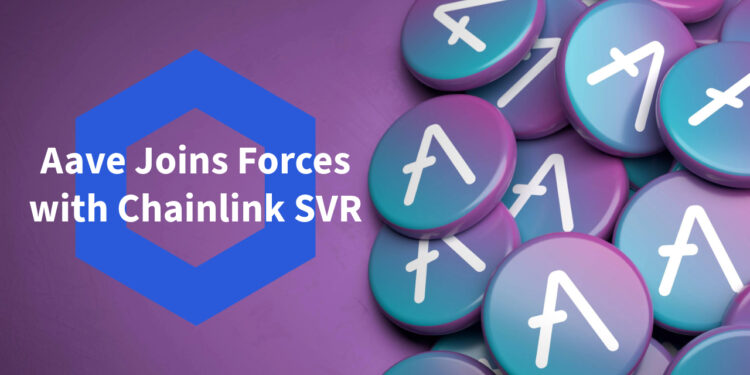- Aave integrates Chainlink’s Smart Value Recapture (SVR) to reclaim MEV from oracle-related liquidations.
- Early estimates suggest up to 40% of MEV can be recaptured, with revenue shared 65%-35% between Aave and Chainlink.
- The initiative aims to boost protocol revenue, mitigate security issues like frontrunning, and set a new standard for sustainable DeFi economics.
The Aave (AAVE) ecosystem might be in for a wild ride now that it has officially integrated Chainlink’s Smart Value Recapture (SVR) technology.
Officially approved in March 2025 by an on-chain community vote, this collaboration targets millions of dollars in previously unclaimed Maximal Extractable Value (MEV) associated with oracle-based liquidations.
The integration was backed by Flashbots, which will take care of the MEV-share model, and BGD Labs, which handled the technical integration.
Related: Stablecoin Surge Threatens Traditional Banking, Senator Gillibrand Warns Against FDIC Protection
Not a Bad Deal
According to the press release, early models indicate that about 40% of MEV could be recaptured, generating a fresh revenue stream split 65%-35% between the Aave and Chainlink ecosystems.
Johann Eid, Chief Business Officer at Chainlink Labs, described SVR as “a new standard in DeFi economics”:
Chainlink SVR is another milestone along that shared path, establishing a new standard in DeFi economics, where liquidation MEV value is returned back to DeFi apps in a highly secure, efficient, and transparent manner as well as helps support oracle infrastructure. SVR is a big step toward creating a truly long-term sustainable DeFi economy.
 Johann Eid, Chief Business Officer at Chainlink Labs
Johann Eid, Chief Business Officer at Chainlink LabsThe Issue With MEV
Maximal Extractable Value (MEV) is quite a controversial topic in crypto, but in essence, it refers to the additional profit blockchain validators and block builders can earn by strategically ordering transactions within a block.
A subset of this, often called Oracle Extractable Value (OEV), emerges during liquidation events on DeFi platforms. Historically, blockchain operators benefited from these profits rather than the protocols themselves.
To give an idea, Aave manages over US$19B (AU$30B) in assets, while Chainlink’s infrastructure secures more than US$20T (AU$31.7T) in transactions. But neither ecosystem has received meaningful compensation from the liquidation events powered by their own technology.
Therefore, the amount of money taken from MEV hurts the revenue potential for further protocol development. It also leads to security issues like frontrunning or sandwich attacks, which are well-known issues in DeFi trading.
Related: Risk Versus Reward Ratio For Bitcoin Never Better, Says Bitwise CIO
Credit: Source link






















